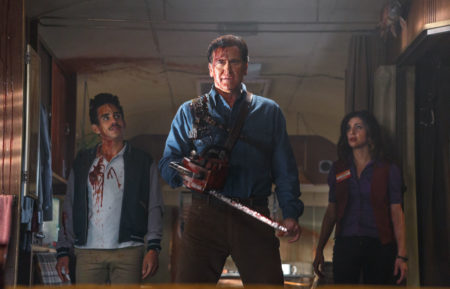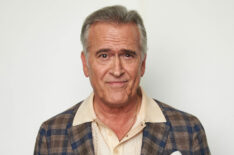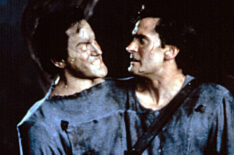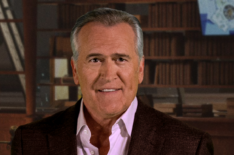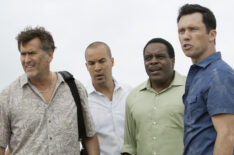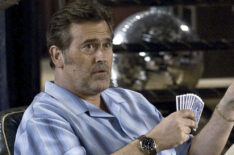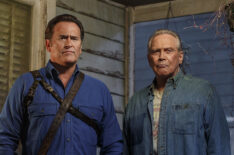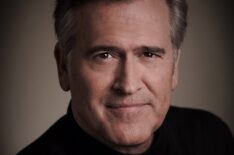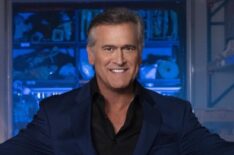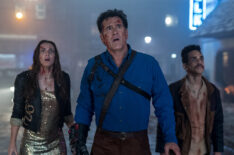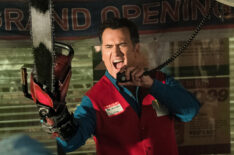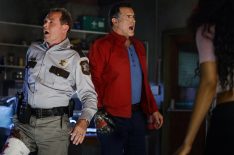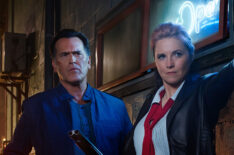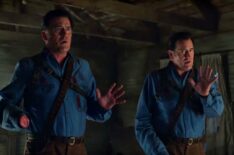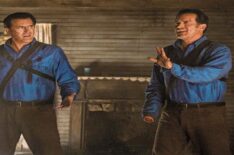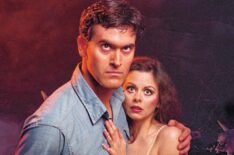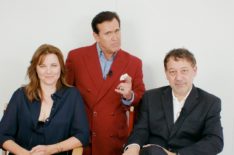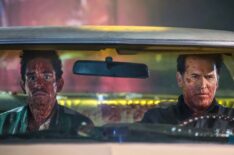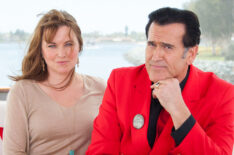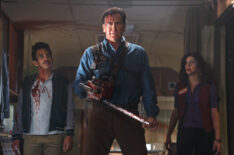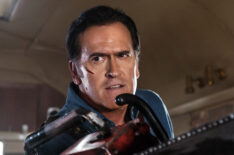Bruce Campbell
Credits
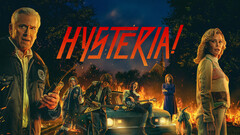
Hysteria!Stream
Actor
Series
2024

Discontinued
Host
Show
2023
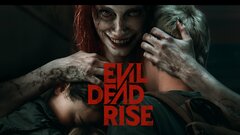
Evil Dead RiseStream
Executive Producer
Movie
2023

HALLMARK: My Southern Family Xmas
Actor
Everett Bergeron
Show
2022

My Southern Family ChristmasStream
Actor
Everett Bergeron
Movie
2022

The Last Kids on Earth: Happy Apocalypse to You
Voice
Chef
Show
2021

Black Friday
Actor
Jonathan
Movie
2021

Black Friday
Producer
Movie
2021

One December NightStream
Actor
Steve Bedford
Movie
2021
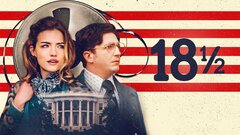
18 1/2Stream
Voice
President Richard M. Nixon
Movie
2021
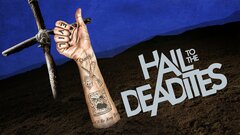
Hail To The DeaditesStream
Self
Movie
2020

The Last Kids on Earth
Voice
Show
2019
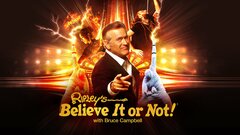
Ripley's Believe It or Not!Stream
Executive Producer
Reality
2019

Ripley's Believe It or Not!Stream
Host
Reality
2019

Ripley's Believe It or Not!: Extras
Host
Show
2019

To Hell and Back: The Kane Hodder Story
Self
Movie
2017

Celebrity PageStream
Guest
News
2016
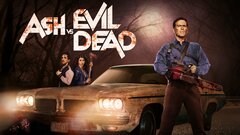
Ash vs Evil DeadStream
Actor
Ash Williams
Series
2015

Ash vs Evil DeadStream
Executive Producer
Series
2015

At Midnight With Chris HardwickStream
Guest
Game Show
2015
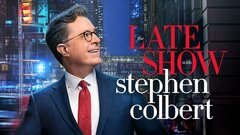
The Late Show With Stephen ColbertStream
Guest
Talk
2015

The Escort
Actor
Charles
Movie
2015
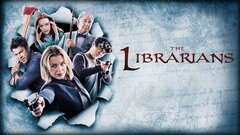
The LibrariansStream
Guest Star
Santa
Series
2014

Doc of the Dead
Actor
Movie
2014

Evil Dead: Extras
Actor
Show
2013
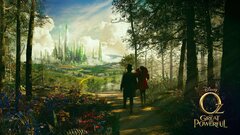
Oz the Great and PowerfulStream
Actor
Winkie Gate Keeper
Movie
2013
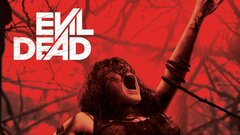
Evil DeadStream
Producer
Movie
2013
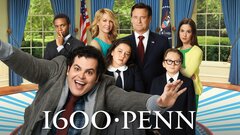
1600 PennStream
Guest Star
Series
2012

Tar
Actor
Goody
Movie
2012

Burn Notice: The Fall of Sam Axe
Actor
Sam Axe
Show
2011

The Walking Dead Girls
Actor
Show
2011

Cars 2Stream
Voice
Rod "Torque" Redline
Movie
2011

Burn Notice: The Fall of Sam Axe
Actor
Sam Axe
Movie
2011

Burn Notice: The Fall of Sam Axe
Executive Producer
Movie
2011

ConanStream
Guest
Talk
2010

ArcherStream
Guest Voice
McGinley
Series
2010

Cloudy with a Chance of MeatballsStream
Voice
Mayor Shelbourne
Movie
2009

Burn NoticeStream
Actor
Series
2007

Spider-Man 3Stream
Actor
Maitre de'
Movie
2007

My Name Is Bruce
Director
Movie
2007

My Name Is Bruce
Self
Movie
2007

PsychStream
Guest Star
Series
2006

The Ant Bully
Voice
Fugax
Movie
2006

Touch the Top of the World
Actor
Ed Weihenmayer
Movie
2006

Robot ChickenStream
Guest Voice
Series
2005

Alien Apocalypse
Actor
Ivan
Movie
2005

Sky High
Actor
Coach Boomer
Movie
2005

Man With the Screaming Brain
Actor
William Cole
Movie
2005

Man With the Screaming Brain
Director
Movie
2005

Man With the Screaming Brain
Producer
Movie
2005

Man With the Screaming Brain
Screenwriter
Movie
2005

Man With the Screaming Brain
Writer
Movie
2005
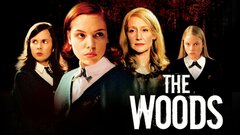
The WoodsStream
Actor
Joe Fasulo
Movie
2005
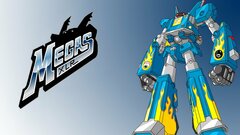
Megas XLRStream
Guest Voice
Series
2004

Spider-Man 2Stream
Actor
Snooty Usher
Movie
2004
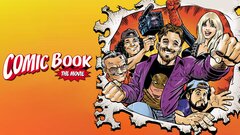
Comic Book: The MovieStream
Actor
Himself
Movie
2004

Comic Book: The MovieStream
Self
Movie
2004
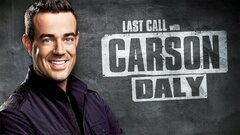
Last Call With Carson Daly
Guest
Talk
2002

Hatred of a Minute
Producer
Movie
2002

Moshenniki
Actor
Movie
2002
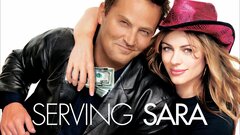
Serving SaraStream
Actor
Gordon
Movie
2002

Terminal Invasion
Actor
Jack
Movie
2002
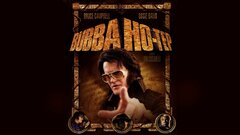
Bubba Ho-TepStream
Actor
Elvis Presley/Sebastian Haff
Movie
2002

The Majestic
Actor
Roland the Intrepid Explorer
Movie
2001

Jack of All Trades
Actor
Daring Dragoon
Show
2000

TimeQuest
Actor
William Roberts
Movie
2000

Icebreaker
Actor
Carl Greig
Movie
2000

Beggars and Choosers
Actor
Show
1999
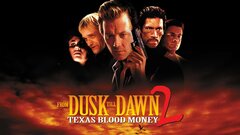
From Dusk Till Dawn 2: Texas Blood MoneyStream
Actor
Barry
Movie
1999

The Ice Rink
Actor
Actor
Movie
1999
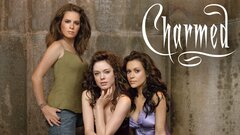
CharmedStream
Guest Star
Series
1998

Goldrush: A Real-Life Alaskan Adventure
Actor
Pierce Thomas "PT" Madison
Movie
1998
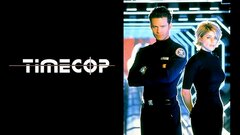
Timecop
Guest Star
Series
1997

In the Line of Duty: Blaze of Glory
Actor
Jeff Erickson
Movie
1997

Assault on Dome 4
Actor
Alex Windham
Movie
1997

McHale's Navy
Actor
Virgil
Movie
1997

The Love Bug
Actor
Hank Cooper
Movie
1997

Running Time
Actor
Carl
Movie
1997

Tornado!
Actor
Jake Thorne
Movie
1996
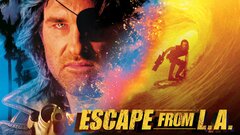
Escape from L.A.Stream
Actor
Surgeon General of Beverly Hills
Movie
1996

Menno's Mind
Actor
Mick Dourif
Movie
1996
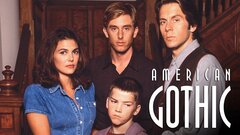
American GothicStream
Guest Star
Series
1995

Xena: Warrior PrincessStream
Actor
Series
1995

Xena: Warrior PrincessStream
Director
Series
1995

Xena: Warrior PrincessStream
Guest Star
Series
1995
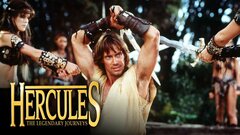
Hercules: The Legendary JourneysStream
Actor
Series
1995

Hercules: The Legendary JourneysStream
Director
Series
1995

Hercules: The Legendary JourneysStream
Guest Star
Series
1995

EllenStream
Guest Star
Ed Billik
Series
1994
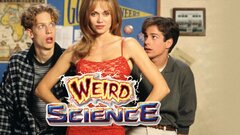
Weird ScienceStream
Guest Star
Gene the Genie
Series
1994
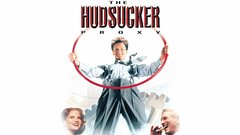
The Hudsucker ProxyStream
Actor
Smitty, Argus Reporter
Movie
1994
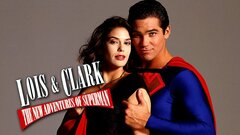
Lois & Clark: The New Adventures of SupermanStream
Guest Star
Series
1993
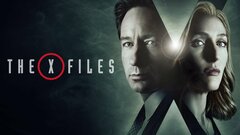
The X-FilesStream
Actor
Wayne Weinsider
Series
1993

The X-FilesStream
Guest Star
Wayne Weinsider
Series
1993
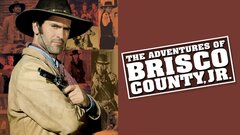
The Adventures of Brisco County, Jr.Stream
Actor
Brisco County, Jr.
Series
1993
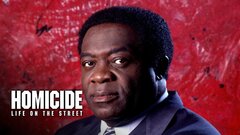
Homicide: Life on the StreetStream
Guest Star
Series
1993

The Adventures of Brisco County, Jr.
Actor
Brisco County Jr.
Movie
1993

Waxwork II: Lost in Time
Actor
John Loftmore
Movie
1992

Mindwarp
Actor
Stover
Movie
1992
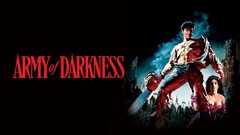
Army of DarknessStream
Actor
Ash
Movie
1992

Army of DarknessStream
Co-Producer
Movie
1992

Army of DarknessStream
Film Editing
Movie
1992

Maniac Cop 2
Actor
Jack Forrest
Movie
1991

Lunatics: A Love Story
Actor
Ray
Movie
1991

Lunatics: A Love Story
Producer
Movie
1991

Darkman
Actor
Final Shemp
Movie
1990
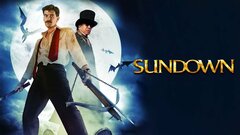
Sundown: The Vampire in RetreatStream
Actor
Van Helsing
Movie
1989

Moontrap
Actor
Ray Tanner
Movie
1989

Easy Wheels
Producer
Movie
1989

Maniac Cop
Actor
Jack Forrest
Movie
1988
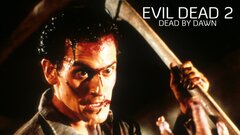
Evil Dead 2Stream
Actor
Ashley "Ash" J. Williams
Movie
1987

Crimewave
Actor
Renaldo "The Heel"
Movie
1985

Thou Shalt Not Kill ... Except
Writer (Story)
Movie
1985

Going Back
Actor
Brice Chapman
Movie
1984
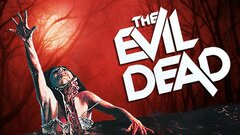
The Evil DeadStream
Actor
Ashly 'Ash' J. Williams
Movie
1981

The Evil DeadStream
Executive Producer
Movie
1981

Mystery No Mystery
Actor
Movie
1976
News aboutBruce Campbell
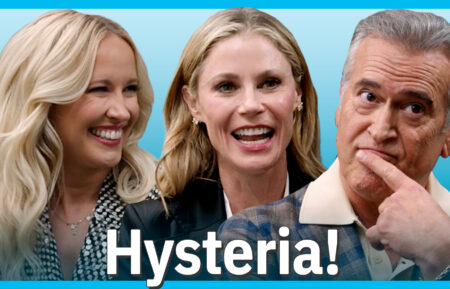
Comic-Con
‘Hysteria!’ Cast, EPs Break Down the Terrifying Demon’s Inspiration & More (VIDEO)

Opinion
‘Hysteria!’ Stars Anna Camp, Bruce Campbell, Julie Bowen & More Offer Spooky Details (VIDEO)
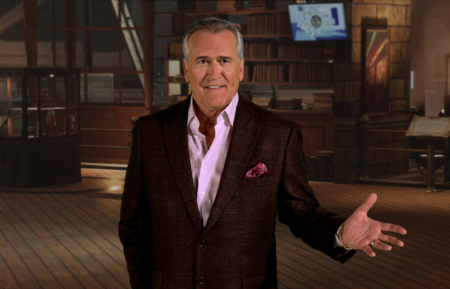
Q&A
‘Discontinued’ Host Bruce Campbell on Ryan Reynolds’ Tears & His Nostalgic New Docuseries
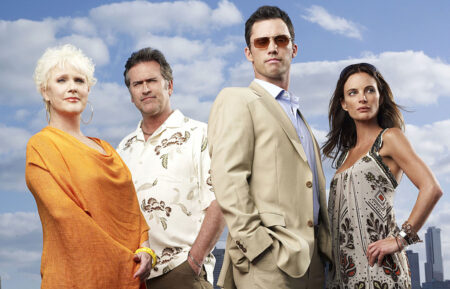
‘Burn Notice’ Turns 15: Where’s the Cast Now?
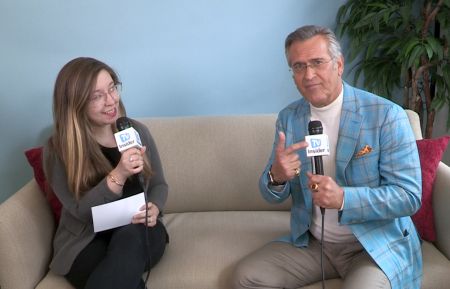
Preview
Bruce Campbell on the ‘Ripley’s Believe It or Not!’ Reboot & Putting Ash to Rest (VIDEO)
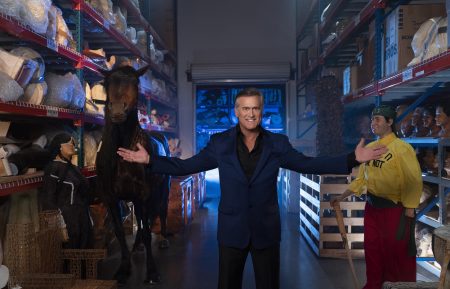
Q&A
Bruce Campbell on the Extraordinary Tales Coming to ‘Ripley’s Believe It or Not!’ Reboot
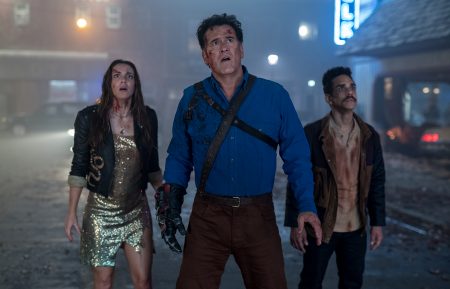
Exclusive
Bruce Campbell Reacts to ‘Ash vs. Evil Dead’ Coming to an End
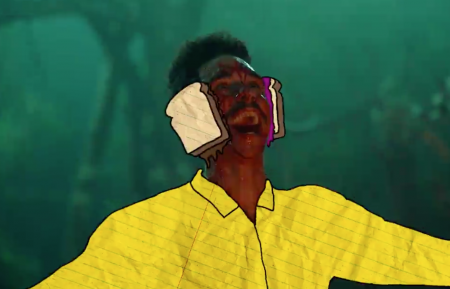
Exclusive
‘Ash vs. Evil Dead’ Season 3 – Gore = This Hilarious Trailer (VIDEO)
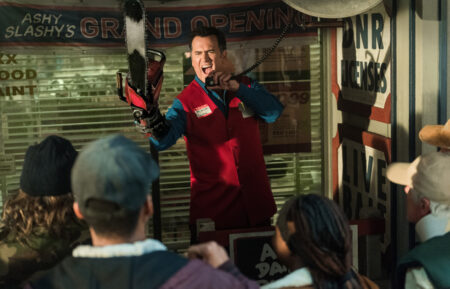
‘Ash vs Evil Dead’ First Look: Ash Is a Hometown Hero
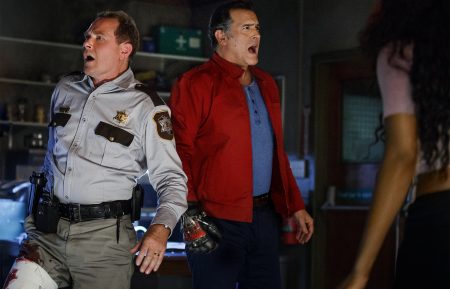
‘Ash vs. Evil Dead’s Mind-Blowing Trip to Jail (VIDEO)
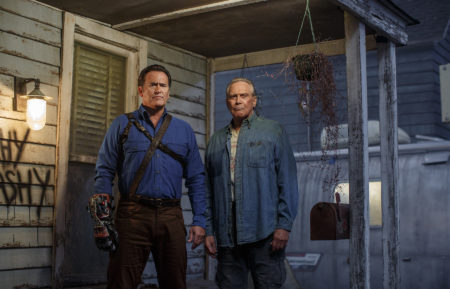
‘Ash vs. Evil Dead’: TV Legend Lee Majors on Playing Ash’s Dead-beat Dad
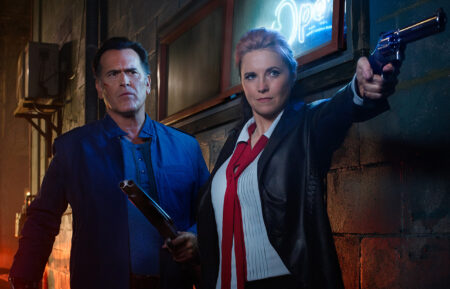
‘Ash vs. Evil Dead’ Promises More Undead Chaos in Season 2

TV’s Biggest Stars Strike a Pose at TCA (PHOTOS)
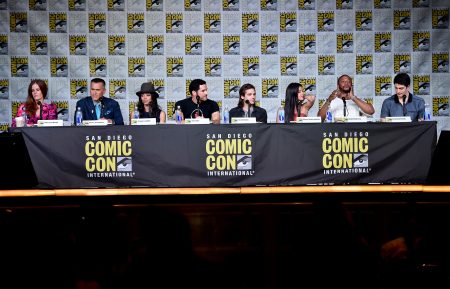
6 Things We Learned at ‘TV Guide Magazine’s Fan Favorites Panel
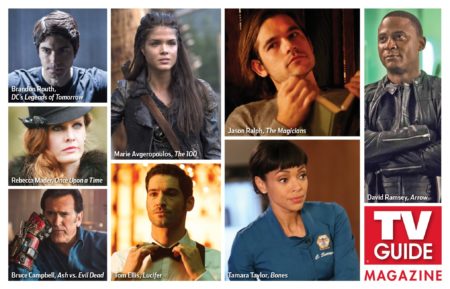
‘TV Guide Magazine’ Reveals 2016 Comic-Con Fan Favorites Panelists
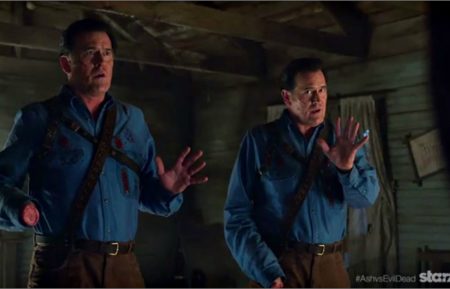
Ash Must Face His Worst Fears—and His “Twin” on ‘Evil Dead’ (VIDEO)
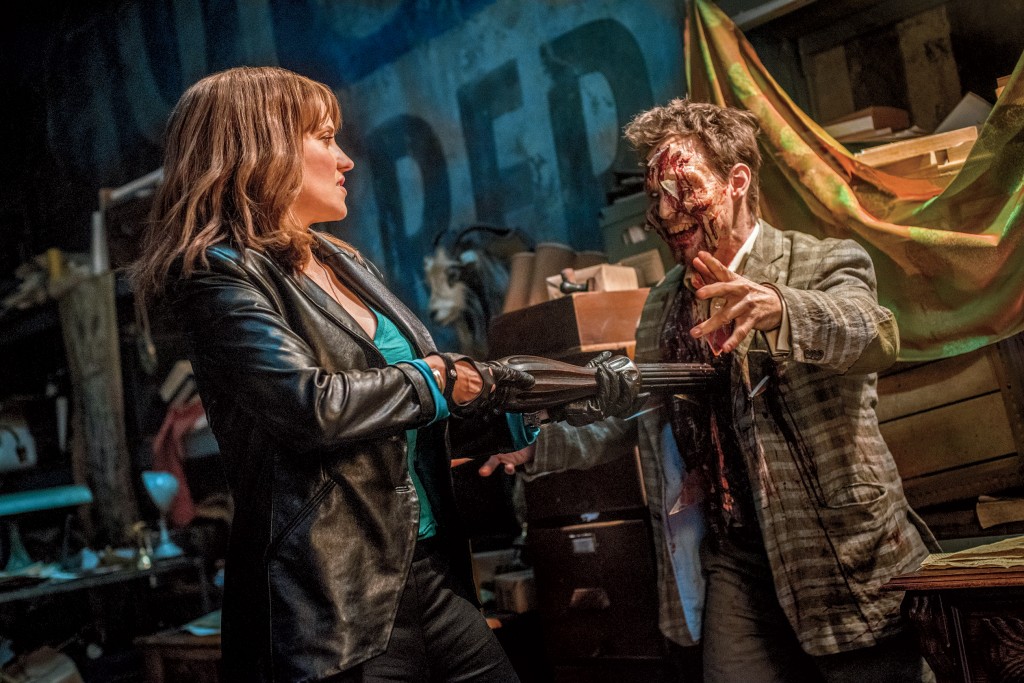
The Sweet, Slow Burn of Lucy Lawless on ‘Ash Vs. Evil Dead’
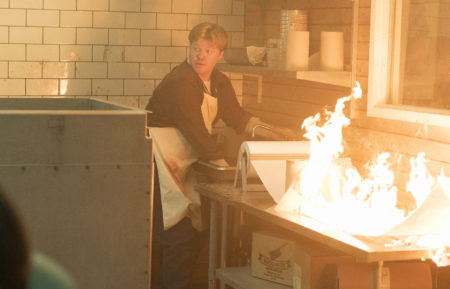
5 Reasons You Should Start Watching ‘Fargo’ Right Now
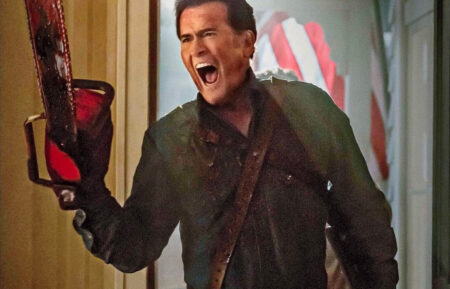
The Campy ‘Ash vs. Evil Dead’ Will (Literally) Raise Hell on Halloween
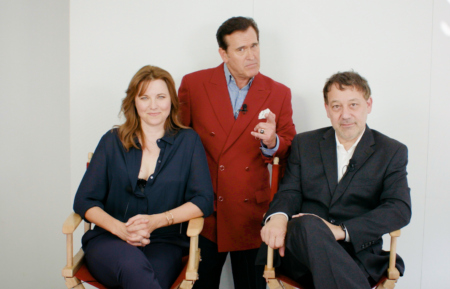
‘Ash Vs. Evil Dead’ Cast Hunts Down Ash’s ‘Tiny Bit of Nobility’ (VIDEO)
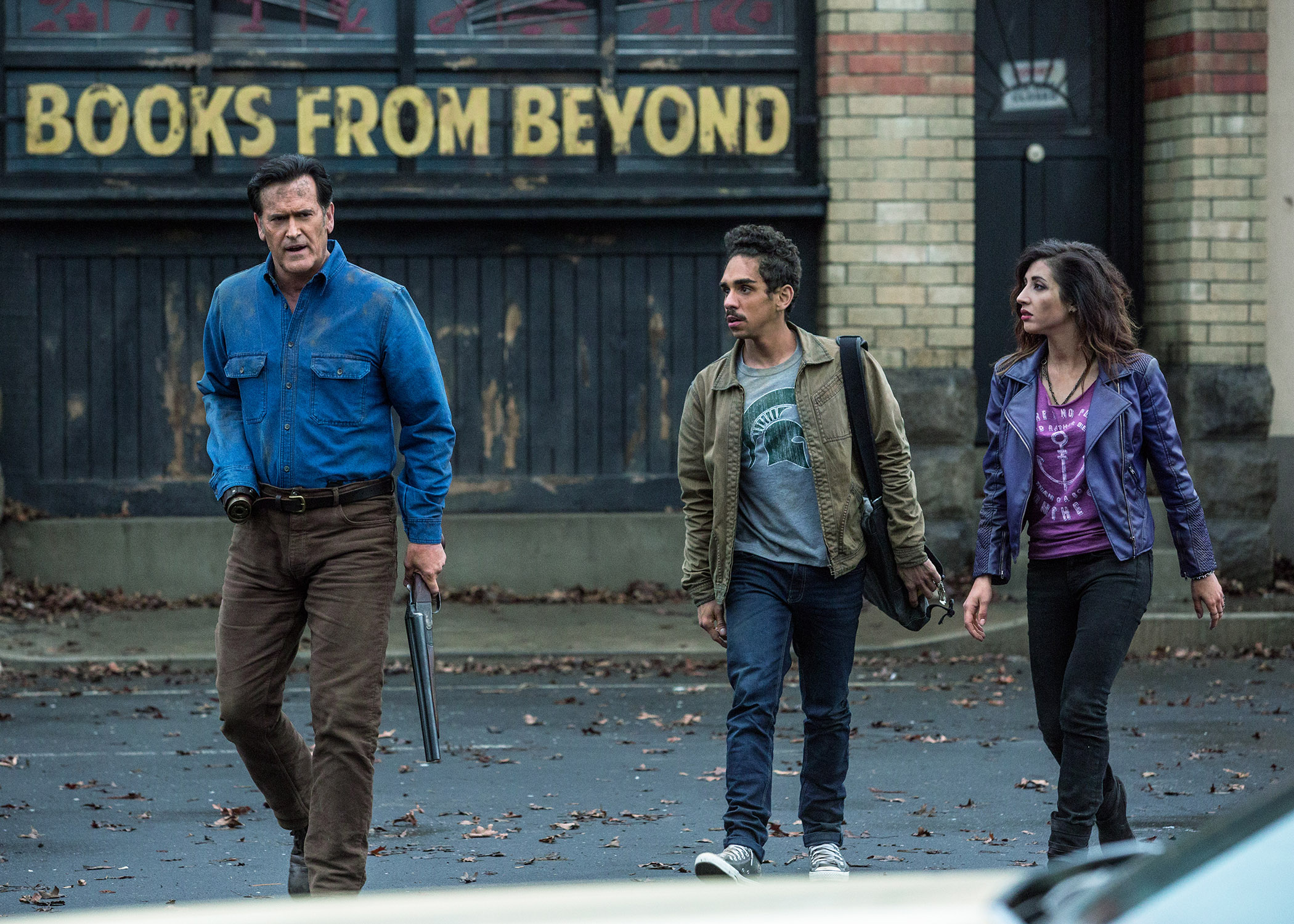
‘Ash vs. Evil Dead’: Bruce Campbell Brings the Swagger to Fighting Deadites
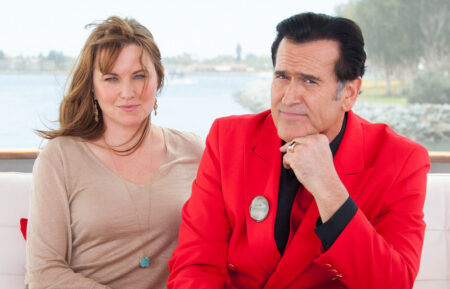
‘Ash vs. Evil Dead’s Bruce Campbell and Lucy Lawless Are Having a Bloody Good Time (VIDEO)
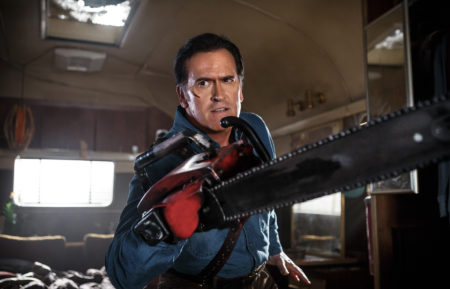
See the Creepy New ‘Ash vs. Evil Dead’ Key Art (PHOTO)
